- Home
- Philip Pullman
The Haunted Storm Page 9
The Haunted Storm Read online
Page 9
Once inside the field, he made her sit down beside him, and leant back against a clump of hazel saplings. The hedge was thick and still. The field sloped gradually upwards in front of them, ending on a ridge about a hundred yards away where a clumsy wire fence separated it from the next. Outlined against the grey sky on the other side of the fence was a dilapidated hut, made of corrugated iron and roofed with tarred felt. He wondered what it was for; it was too big for a pig-shelter, and not close enough to any farmhouse to be much use as a chicken-house… It was just about big enough for a man to live in on his own, if he had few possessions. Next to it a dead tree lay on the ground, with one great thick bare branch thrusting up against the sky. Matthew was fascinated by this little group of apparently useless things, as he had been fascinated by the rubbish in the car-park near the beach. Something in the way the light played on them or in the way they were grouped reached down deep into his unconscious memories and stirred his heart as if it were a dream, giving him the tormenting hint that nothing short of rapture was awaiting him if only he could penetrate the secret they symbolised.
But no – he suddenly realised with a powerful start of surprise that the secret of those dreams and memories was here beside him, now.
His arm was around her shoulder, and he pulled her close to him, trying to make sense of it. And he thought it would only make sense if when he looked at her – when he kissed her – he would be unconscious of her, and conscious only of that subterranean life-force that welled up with a tumultuous, enigmatic joy, overflowing his heart, when he was alone in front of things like this field or the sky over the houses near the beach.
He hugged her closely with his left arm and caressed her burning cheek with his other hand, trying to soothe her sobs; but she still cried, not responding in the least, sitting tensely against him.
“Speak! Speak to me Elizabeth!” he whispered. “If it’s all breaking down and coming apart, this false life of yours, then it’s to the good – never forget that your soul is real, and so is mine, and that we’re not part of the world! We can’t be defeated, my love! It was impossible that we should not meet and love each other – it’s impossible for us to lose it – you are the source of my life, and I am the source of yours, and there’s nothing stronger than us in the earth or the sky – oh, believe me, Elizabeth! Believe me! Hush, now, and look at me – look up at me – that’s it – dry your eyes, and stop crying, my love; be still, now, rest your head against me, like that; that’s right, be calm, and speak to me if you want to, and I’ll listen.”
She shook her head numbly and leant it against his shoulder again, but she was not crying. Once or twice a sob shook her chest, but otherwise she was still. And Matthew went on, thinking aloud, half dreaming:
“I can’t be aware of you and aware of the world at the same time… it’s a different kind of consciousness, different eyes I see you with. I don’t just see: you, a girl aged – what are you? twenty-two, the daughter of a priest, who lives in the country, who works – I don’t know what you do – I don’t know at all… for all I know you might be married. Because you’re not in focus when I look at the world, that’s what I mean; you’re not, and nor is anything else that’s sublime… and that’s a word you don’t hear nowadays, isn’t it! I don’t think anyone’s used that word seriously for years and years, but the sublime exists and from time to time I see it – anywhere… and you contain it, love does – I am beginning to love you now, Elizabeth, because every second I grow more conscious of you: you’re driving the world out of me! “
There was an idea tormenting him, and he couldn’t stop until he had articulated it; but what it was, he didn’t know. He went on, letting his voice find its own way:
“I’m losing sight of the world, thank God, I’m going blind… and the summit of hope and the end of desire will be when I’m blind and deaf, and alone, driven by one raging motive with everything else forgotten – if you’re blind you can’t see illusions: so put your eyes out! If you’re deaf you can’t be distracted by lies: so stop your ears up! and I am blind, deaf, alone with my one lust which is love, and it en gages every bit of me, I am driven, possessed, pure at last, at peace – yes! peace! Driven and obsessed, at peace! Do you understand that? Oh, why do I ask that? Yes, of course you understand, and it’s only because you and I are brother and sister, with one soul, that I feel like this at all. Now I’m beginning to feel it for the first time…it’s breaking into my heart, flooding into my soul, as if dykes are bursting, walls crumbling, under the weight of it… what is it? Love, I call it, and lust. The object of it – whatever it is – is you; you, your slim body and your hard intent soul; they’re mine! And it’s the ache of it, too, Elizabeth, it’s like the longing for home when you’re a small child away from your parents, but far fiercer and deeper than that because I’m more impatient now, I’m stronger than I was; the longing has more worldliness to overcome before it can sweep cleanly into my soul – but it does sweep into me, and now I know where my heart is: it’s where this bitter pain is most intense! … How is it happening? why, why, in God’s name, does it hurt? I thought it hurt when it was unrequited, but no! There are no obstacles now, there’s no distance between us here; so why does it ache? It does, though, intolerably, and I think – think! I don’t think any more! I am – I dream – it is the eternal world speaking through me now! I know, then, that no love can exist without this ceaseless longing and pain, it’s at the heart of love, it is love’s life… All these vague longings, these unrealised sadnesses, this – alienation that makes everything we do trivial and commonplace – they’re only a premonition of pain, and the pain is love –”
She had been sitting absolutely still while he spoke. He was struggling to remain in control of his voice: he had a vivid sense of being spoken through rather than of speaking himself, and the flood of emotions was almost too strong for him. But suddenly she sat up and put her hand to his lips and silenced him.
She leant across and they kissed, almost savagely. Matthew felt his flesh shake with a force that transcended sexuality altogether; for while sex scorched the flesh and set it burning, this pierced straight through him like light through glass, making him like crystal at the blaze of noon; and he sensed the physical world around him straining to burst, as a bud breaks, into that state of being which she had named morality.
How long the sense of it lasted he had no idea; at length they drew back gently and faced each other. On her cheeks were the marks of tears, and her hair was tangled; the sleeve of her white raincoat was stained with green where it had crushed the grass. Around her hands, and around the flesh of her neck, he discerned – if not with his eyes, then with some other sense – a wild, tender, will-to-touch that moved him inexpressibly, like music; and his hands joined hers, and they kissed again. Plainer and plainer every second it came to him that his flesh and hers were not going to be kept apart; if it had not been sex that stirred him a moment ago, it was now; and she, for her part, pressed her body more urgently against his with every moment.
But then she broke away, quite suddenly, and sat away from him, her eyes bright and disturbed.
“Matthew,” she whispered, “to go beyond it now – to go beyond it – to transcend it – what would we have to do? Answer me honestly, and remember that I asked!”
Immediately the answer came to his lips: “We’d have to – to stop completely, now, take our hands away from each other and agree never to touch again, never to let sex into us – no: we can’t help it when it does come but we’d have to act like brother and sister: our kisses would have to be chaste, and we’d each of us have to understand the sex impulse when it came in the other, understand it calmly and lead it away… earth it… that’s what we’d have to do, if we wanted to get any further!”
She nodded, slowly at first, and then enthusiastically; and the look on her face, as her eyes met his, was intense and happy.
“Matthew, dear, that’s what I’ve thought too! But you will remember, won’t yo
u, what I said? That I asked, and you answered?”
“Yes,” he said, and laughed; “oh yes, I’ll remember. But now, my sweet – sister, I’m burning from head to toe with it, with lust, I mean, now that I’ve put you out of my reach completely!” And he laughed again, out of pure joy.
“Well, we’ll have to start now. Get up,” she said, and she sprang to her feet and gave him her hands, “stand up now, and kiss me, as you said, chastely; and we’ll go on, down the road.”
He stood up, holding on to her hands, and leant forward to kiss her. As their lips met he felt suddenly conscious of the entirety of her body, the body he’d just renounced, and he knew with a violent certainty what her breasts would feel like cupped in his hands – what her thighs would feel like, with his lips pressed into them – and exactly how hot it would feel to enter her; and the knowledge that the momentous landscape of her body was at that very instant in his arms made his heart surge: but no, he had renounced it, and there was a reason for it, a good reason, which was that the struggle against his flesh made him a little stronger, a little more tense. He opened his eyes, and saw that she was thinking the same, and they smiled.
“Give me your hand,” he said as they walked slowly back to the gate. “Brothers can hold hands with their sisters; there’s no sexual meaning in holding hands. Oh, I love you, Elizabeth!”
“Perhaps one day we could go into the desert, if sex is wearing us down, or maybe even if it isn’t,” she said; “the sun would burn sex out of us, and we’d be completely naked, hermits, with hair down to our waists, burnt black; and we’d appear in front of travellers, the two of us, holding hands, almost inhuman we’d be, and they wouldn’t be able to tell if you were a man or if I were a woman; and we’d say nothing to them but just vanish back into the desert like mirages…”
“I know what it means to be demonic, and angelic – yes, yes, let’s go into the desert, Elizabeth! Or at least let’s make a start now, today. God! I didn’t know when I came to Barton that I’d find love and Puritanism – sex and morality – all on the same day, all mixed up together, like this… Ah,” he sighed, leaning on the gate and staring sightlessly down the road, “now we’ve… cleared the air, we can start our life. Yes? What shall we say first? What shall we find out about each other?”
“I’m not married,” she said – almost defiantly, he thought, and it puzzled him for a second until he remembered what he’d said a few minutes before. They looked at each other and smiled, and slowly began to feel, as they went out into the road and wandered along up the slope of the hill with their hands firmly locked together, not more confident, not more at ease: but somehow, slowly and imperceptibly, more at one than either of them had ever felt in their lives before.
And so, gradually, they learnt the obvious little facts about each other that afternoon, the surface facts, the trivia. She at first wanted to know nothing, or very little, but he pestered her gently with an almost feminine regard for what she had done, where she had been to school, what her parents were like, and so on. He learned that she’d read English at the University of London, and that she now worked in a second-hand bookshop in Silminster, and that she’d thought of training to be a pianist, and that her mother was Welsh; and he told her in return that he’d read Spanish and French at Oxford, and that out of desperation when he came down he had nearly followed the tradition of his father’s family and entered the Army; and she laughed wholeheartedly at this, and teased him.
“But Elizabeth,” he said later, when they were nearly back in the village again: he stopped, and turned to her, and she saw that he was serious: “we won’t forget, will we? It won’t just wash over us and disappear and leave us empty-handed again, will it?”
“Oh, Matthew,” she said, “don’t ever dream that I’d be faithless. Not now! You might forget and fail, but I won’t. No, dear, don’t misunderstand; I don’t think you will, I wasn’t saying that. But you didn’t have to ask, that’s all I meant.”
“I’m sorry,” he said foolishly, “I didn’t think… I swear – I swear I’ll be faithful to everything, to our brother-and sisterhood, for ever. Now let’s kiss again.”
They kissed; and as they came back into the village the rain thickened and began to fall steadily. The light was now; the afternoon was nearly over. A police car passed them on the way up the hill.
Chapter 6
Canon Thomas Cole arrived back at the rectory at half-past five. He had been visiting one of his parishioners, an old spinster who was ill; normally, for some unfathomable reason, he liked her and enjoyed her company, but he resented having to go to her this afternoon, because he had meant to spend some time at the well in Ditton Wood. Just as he was setting out, however, his wife remembered Miss Harrison; and, annoyed, he put the car back in the garage and set out on foot.
He was speedily roused to anger – or petulance, as it often seemed to his wife – but he was not vindictive, except when he was afraid, and he was certainly not afraid of Miss Harrison. Consequently he had almost forgotten his annoyance with her and her niece. When he was with women – particularly old unmarried women – he tended quite unconsciously to drop the rather mannered theatricality which had so surprised Matthew in him, and to put on instead the affectations, and even to a small degree the appearance, of an old woman himself. He did not flirt with them, as some parsons did; he imitated them, without knowing it, subtly and sincerely; and, also without knowing it, they were flattered, and enjoyed his company.
He had tea with them, and then left, having become Canon Cole again and resumed something of his annoyance. He could not quite place it: perhaps it was a belated frustration about his plans for the afternoon, perhaps something more deep-seated. He did not enquire very closely into his own feelings, as a rule, because he exteriorised them so thoroughly and successfully. The world, to him, was very vivid. But as he turned in to the rectory drive he realised suddenly what it was, and his annoyance gave way to apprehension. It was only that he had made an appointment with that boy, Matthew Cortez, for the evening. He wondered what he would find to say. As a priest he was used to receiving strangers in his house and being engaged in wearisome neurotic chatter. When he was younger he had done his best to get used to it, but he never liked it. He realised that people needed help, and that it was his duty to provide it; but only a duty, and not an inclination. He had only joined the church because of the opportunity it seemed to offer for the pursuit of scholarship. A university would not do; his scholarship was of a particularly fastidious, obsessive, even crazy kind which was best, perhaps, kept private and obscure. In another century he would have been an alchemist.
He would not have become a priest at all if he had not had some money of his own; for to concern himself with a hundred necessary petty economies and to witness the slow encroachment of shabbiness and dinginess into his life would have been an agony for him.
But Cortez; he would be a sounding-board, at least, if he did not fuss and fret about things. The Canon was embarrassed to find that he hoped Cortez would like him, that they’d get on together. Elizabeth these days was so hard, so hard to approach; and as for Gwen, his wife, she was – she could be very cruel. The air, the atmosphere between them had been silent for a long time.
He opened the front door of the rectory and heard Gwen call out “Is that you, Elizabeth?” He shut it quietly behind him and took his coat off before answering.
“It’s me,” he said loudly. “Where is she?”
“She said she’d be back at four o’clock to help me with the W.I.,” said Gwen, coming into the hall. “I had to do it all by myself.”
“Where did she go?”
“Gracious, I don’t know. Do you want a cup of tea now or will you wait for supper?”
“No, no, I’ll wait. What – oh, no, it doesn’t matter. I’m worried, with all these policemen about; I suppose they’re necessary. It’1l be dark before long.”
“It’s not the policemen you ought to worry about…” she began, but he
had already gone into the sitting-room.
“Yes, I’m aware of that,” he called back to her.
She said nothing else; he imagined she had gone back into the kitchen, and felt secretly and absurdly guilty for a second; but then immediately he was worried again. Supposing Elizabeth had wandered too far over the moors and had met the murderer? They hadn’t caught him yet, they hadn’t even got any clues; he could be anywhere. It might be one of the men from the village – there was that half-wit – what was his name – Archer. They could never tell, in cases like this, he’d read, sex-murders… he grimaced in voluntarily, and felt a rush of compassion both for the murdered girl and for her family, mingled with an intense, biting curiosity about the murderer and a fear for Elizabeth; and he sat quite still, stiff in his armchair for over a minute, while his eyes darted this way and that in the confusion of his feelings. Then he relaxed and sat back.
He could not sit still for long. He did not know whether he was glad to be alone for a while or tormented by the absence of others; he felt now one thing, now the other, and after a few minutes the second feeling prevailed. Gwen was deliberately ignoring him. It was plain that she would have preferred it to have been Elizabeth coming in a few minutes before; she took little trouble to hide her dislike of him. Unhappily he got up and wandered about the room, staring out into the gathering darkness but seeing only his own re flection looking back at him. “Oh Gwen,” he muttered, and turned abruptly to go into the kitchen.
She was drying her hands on a towel; she started with alarm when he appeared in the doorway.
“What’s the matter?” he said.
“You startled me; isn’t it obvious?”
“Why should it startle you to see your husband in the doorway?”
“Oh, I don’t know.”

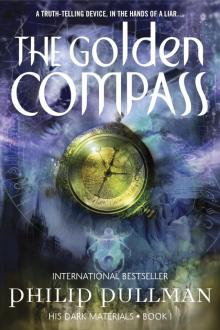 The Golden Compass
The Golden Compass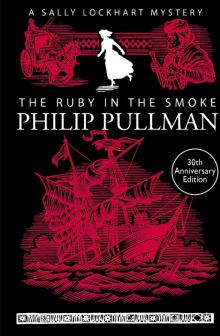 The Ruby in the Smoke
The Ruby in the Smoke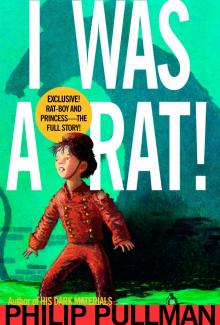 I Was a Rat!
I Was a Rat!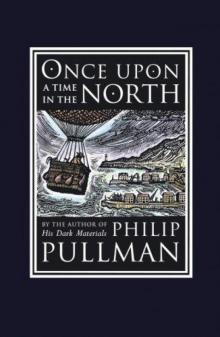 Once Upon a Time in the North
Once Upon a Time in the North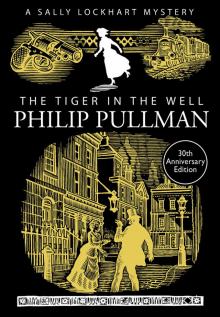 The Tiger in the Well
The Tiger in the Well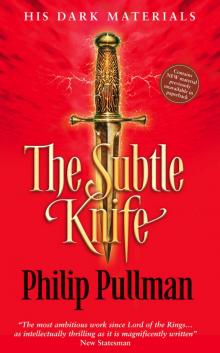 The Subtle Knife
The Subtle Knife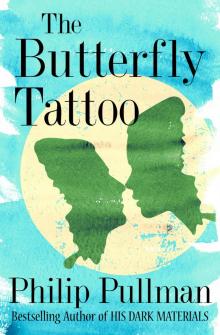 The Butterfly Tattoo
The Butterfly Tattoo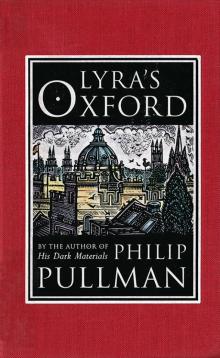 Lyra's Oxford
Lyra's Oxford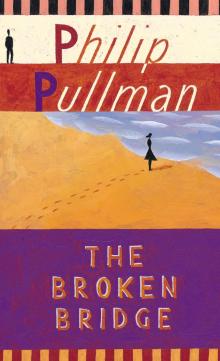 The Broken Bridge
The Broken Bridge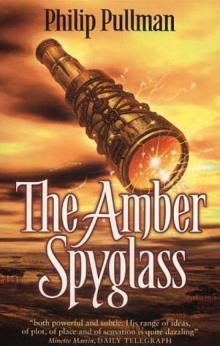 The Amber Spyglass
The Amber Spyglass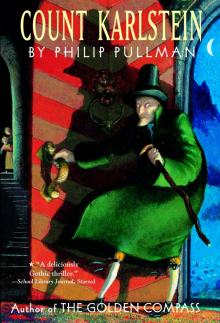 Count Karlstein
Count Karlstein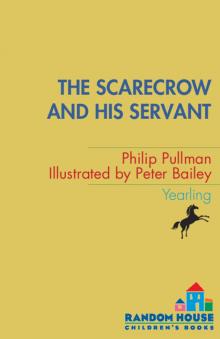 The Scarecrow and His Servant
The Scarecrow and His Servant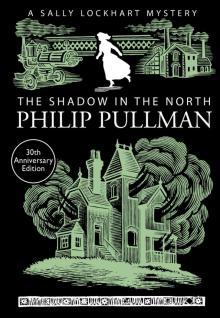 The Shadow in the North
The Shadow in the North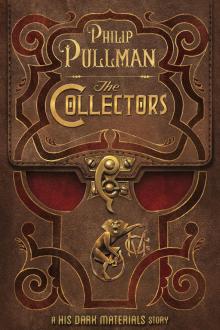 The Collectors
The Collectors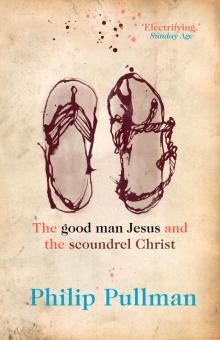 The Good Man Jesus and the Scoundrel Christ
The Good Man Jesus and the Scoundrel Christ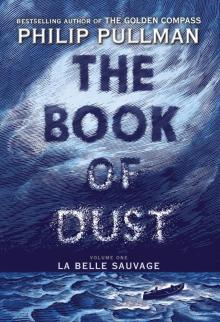 La Belle Sauvage
La Belle Sauvage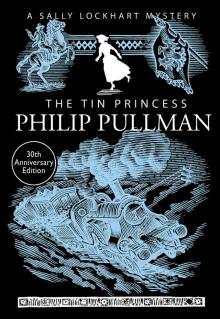 The Tin Princess
The Tin Princess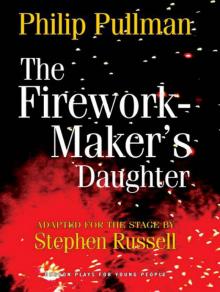 The Firework-Maker's Daughter
The Firework-Maker's Daughter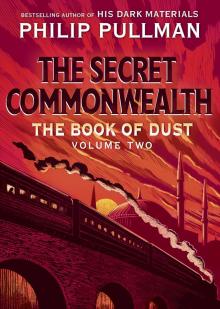 The Book of Dust: The Secret Commonwealth (Book of Dust, Volume 2)
The Book of Dust: The Secret Commonwealth (Book of Dust, Volume 2)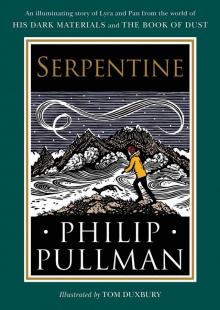 Serpentine
Serpentine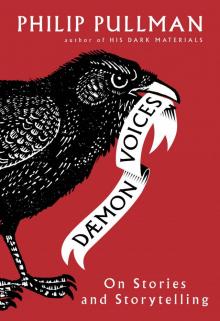 Daemon Voices
Daemon Voices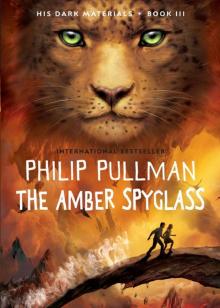 The Amber Spyglass: His Dark Materials
The Amber Spyglass: His Dark Materials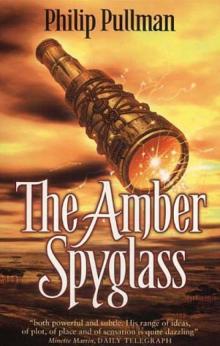 The Amber Spyglass hdm-3
The Amber Spyglass hdm-3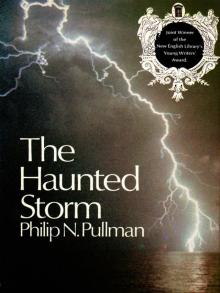 The Haunted Storm
The Haunted Storm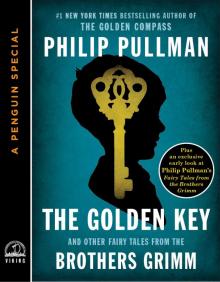 The Golden Key
The Golden Key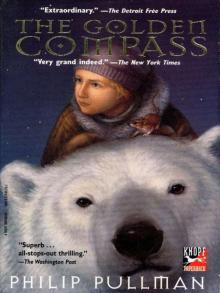 His Dark Materials 01 - The Golden Compass
His Dark Materials 01 - The Golden Compass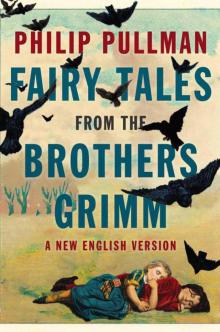 Fairy Tales from the Brothers Grimm: A New English Version
Fairy Tales from the Brothers Grimm: A New English Version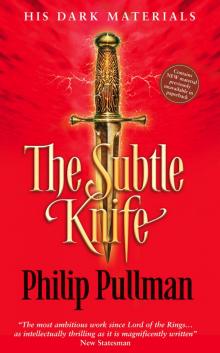 His Dark Materials 02 - The Subtle Knife
His Dark Materials 02 - The Subtle Knife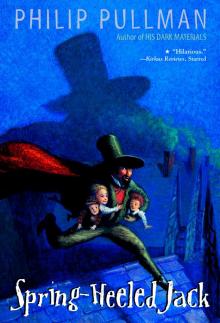 Spring-Heeled Jack
Spring-Heeled Jack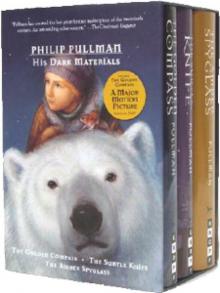 The Golden Compass hdm-1
The Golden Compass hdm-1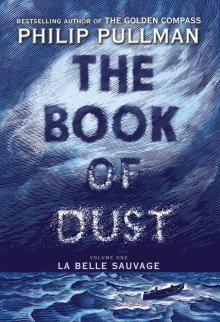 The Book of Dust, Volume 1
The Book of Dust, Volume 1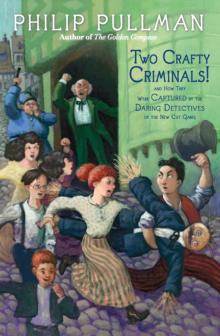 Two Crafty Criminals!
Two Crafty Criminals!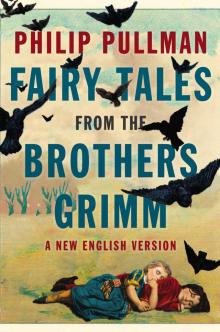 Fairy Tales from the Brothers Grimm
Fairy Tales from the Brothers Grimm The Subtle Knife: His Dark Materials
The Subtle Knife: His Dark Materials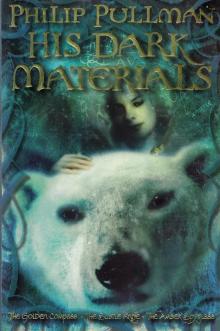 His Dark Materials Omnibus
His Dark Materials Omnibus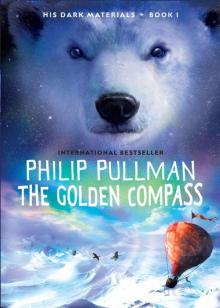 The Golden Compass: His Dark Materials
The Golden Compass: His Dark Materials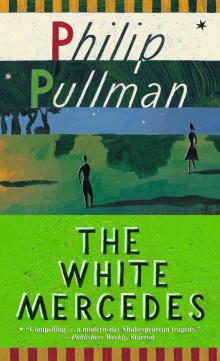 The White Mercedes
The White Mercedes